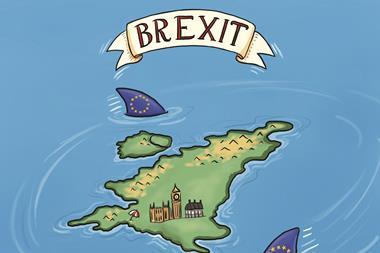Science is a global endeavour and a national challenge
So the electioneering is over or has at least shifted down a gear. Once again the UK has a majority government (Conservative, in case you missed it) that is, by now, over the wide-eyed surprise of the win, has formed its cabinet, and is looking to all the policies that could come to pass if they can keep their own ministers in check.
So, whither science in the UK and the funding, education, nation even, that will secure its future? We know that government funding stands at around 0.5% of GDP, lower than any other G8 country. And while the ring fencing that safeguarded the science budget was welcomed in the last parliament as we weathered a financial storm we are now left trailing behind the EU average investment of 0.7% GDP, like savers stuck with a rubbish interest rate once the special offer ends. The same budget protection has not been offered this time round.
Savers can pick and choose where to invest of course; if you can overcome apathy and inertia, there’s probably a better bank out there. And UK scientists are far from apathetic – looking beyond our sovereign bank, they have secured nearly £1.5 billion from the European Research Council since 2007 (making the UK the largest recipient in Europe, receiving about 20% of the funding when we contribute about 10% of the EU budget). The total fund for Horizon 2020 is nearly £67 billion, and the UK might expect to take a decent lump of that based on its current performance, about £2 billion in the first two years according to Màire Geoghegan-Quinn, European commissioner for research, innovation and science. The Conservatives pledged £6.9 billion for research infrastructure up to 2021 in their manifesto, which looks like it may come in handy if access to EU funding decreases as the UK increases its distance from Europe or makes a ‘Brexit’. Cutting off access to money is one problem, but let’s not forget the people we need to actually do the science. The free movement of labour in the EU, if threatened, could be very serious for science; an immigration debate without nuance, balance and evidence would be perditious (see Mark Peplow’s comment).
How about our home-grown scientists? The Conservative manifesto promises training for an extra 17,500 maths and physics teachers and it looks like a College of Teaching is on its way (which will finally recognise teachers alongside those in healthcare, engineering, finance and many other professions who have had colleges, royal or otherwise, for centuries in some cases). And a postgraduate loan system for Masters and PhD students looks to be on the way. Nick Clegg can oppose the hell out of that without embarrassment at least.
One third of secondary school chemistry teachers do not have a chemistry degree – I’m not bashing those who don’t, it’s terrible that teachers suffer unparalleled levels of opprobrium just for turning up to work – but I’d like to see access to training improved (yay, more loans!) and some serious incentives for science graduates to get in the classroom – especially at primary level. All our favourite teachers loved their subject, and that passion is infectious. It’s a shame so few of our politicians seem to have caught it – and want to place the UK under quarantine to boot.












No comments yet